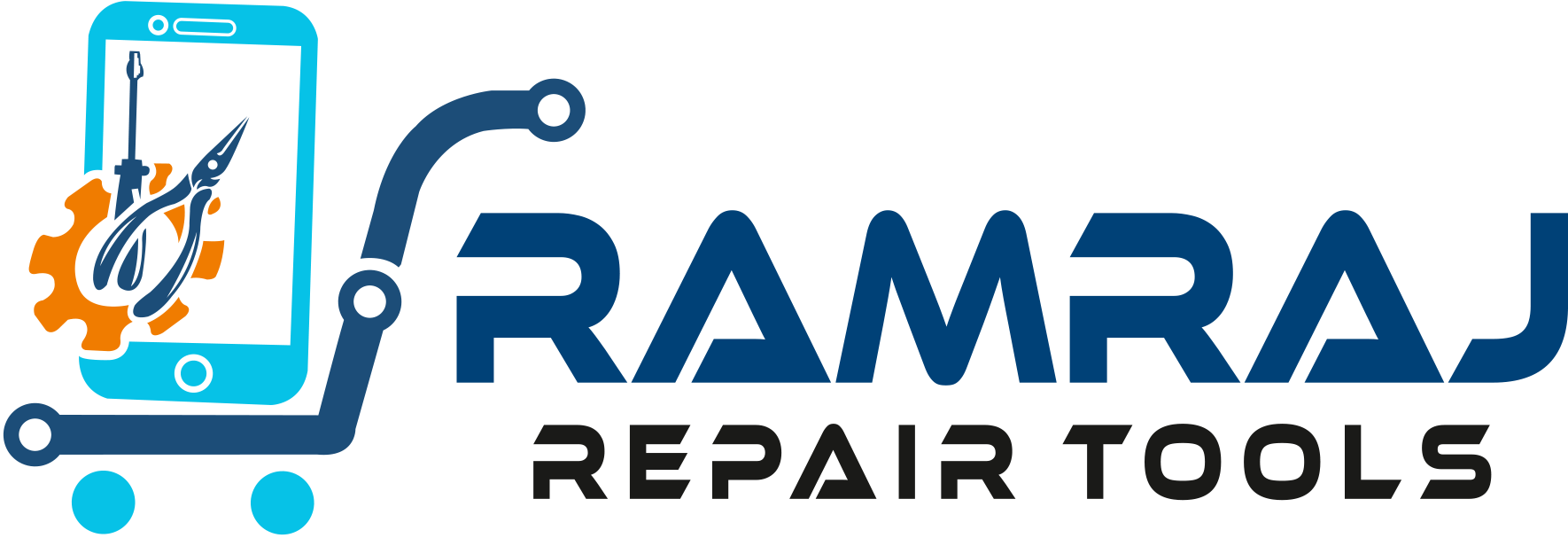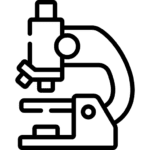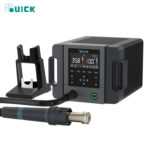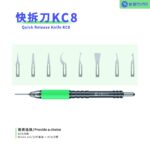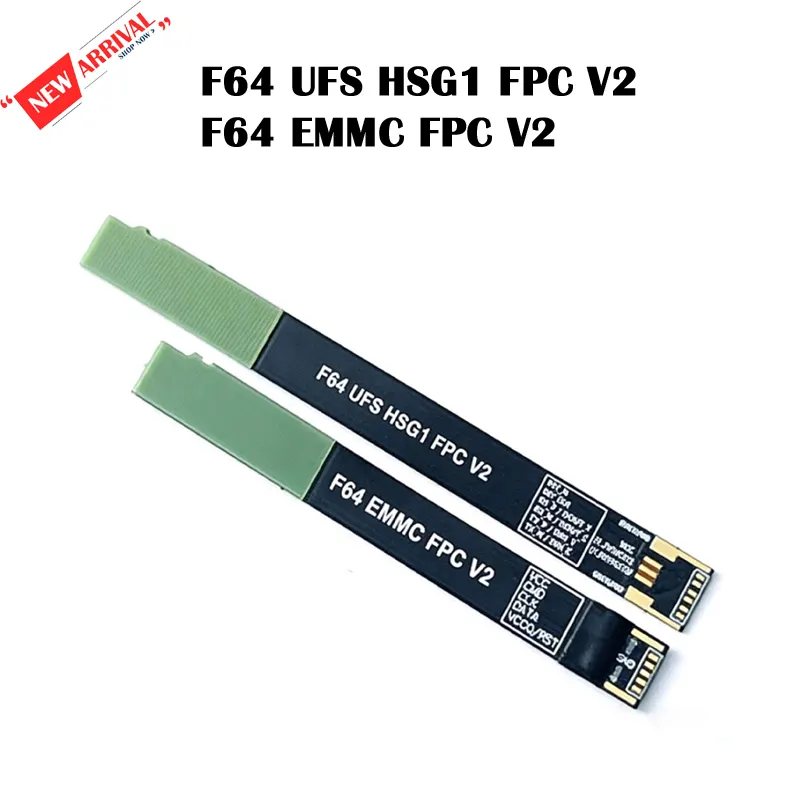Blog
2UUL Microscope MC7060-A1
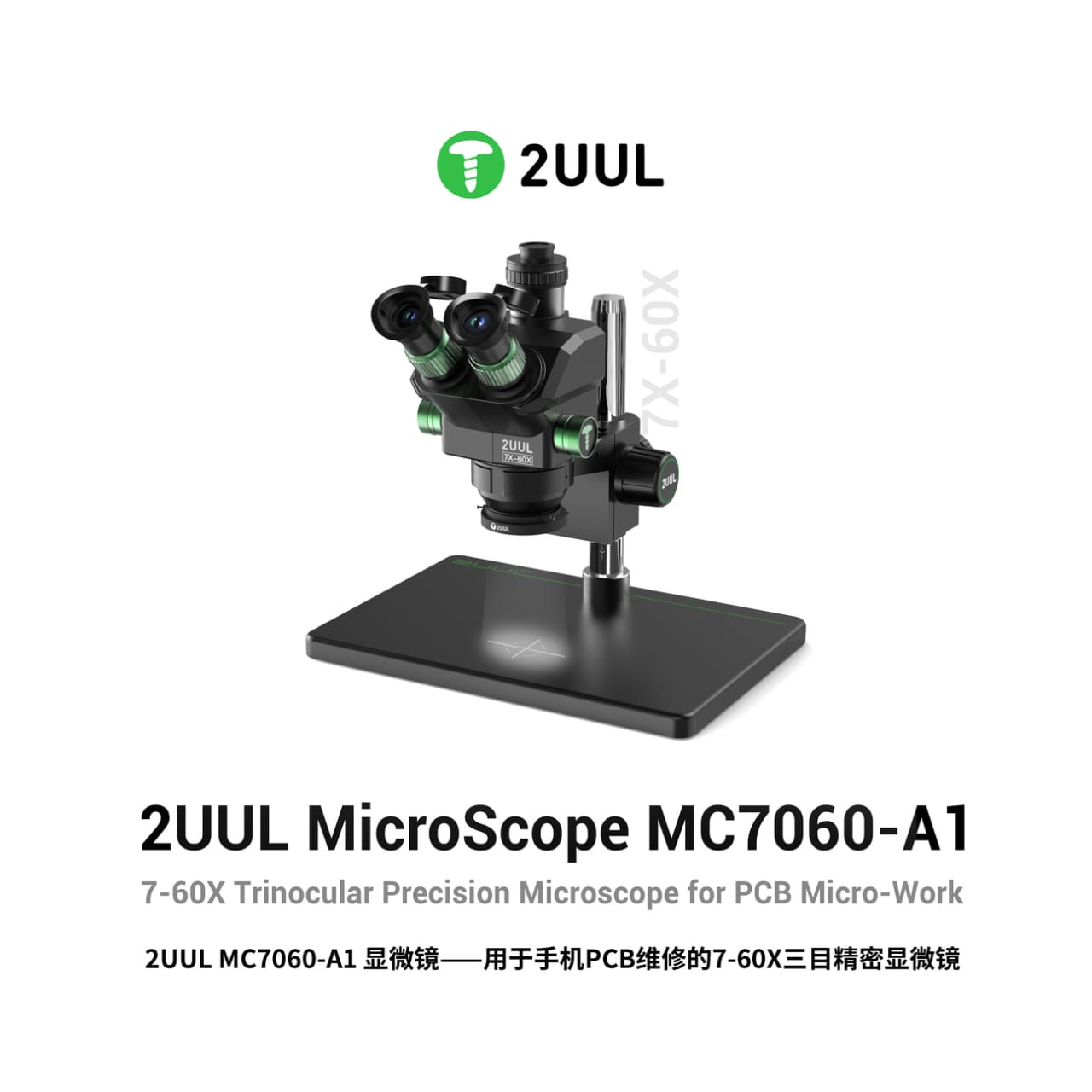
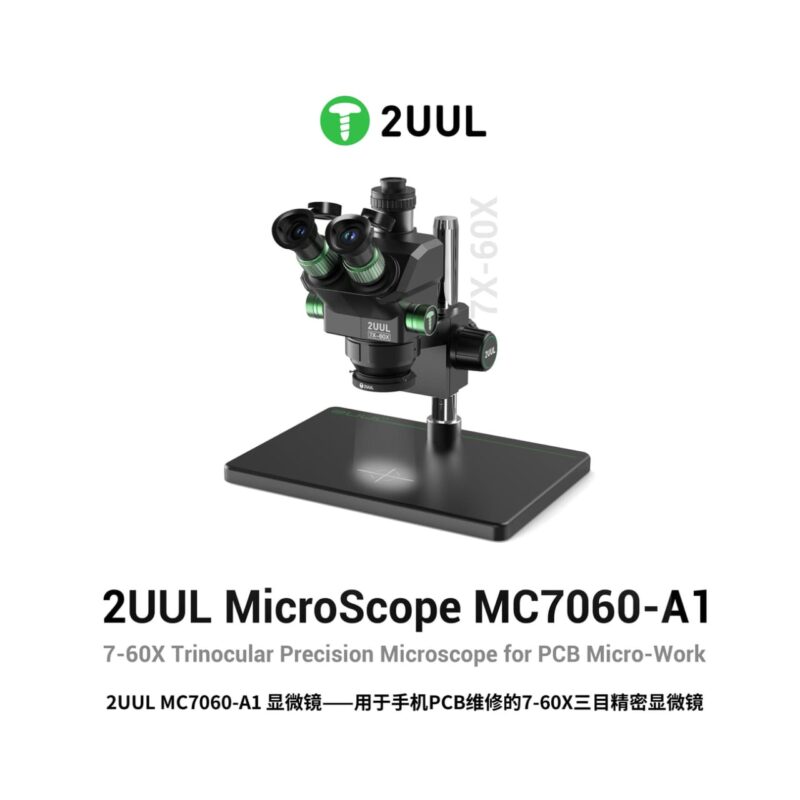
Problem
Whether in science labs, electronics repair shops, or medical facilities, one common challenge professionals face is the need for precision at a microscopic level. Human eyes can only detect objects as small as about 0.1 millimeters. Anything smaller—like cells, bacteria, or microcircuits—remains invisible without the help of specialized tools.
For example, in the electronics repair industry, printed circuit boards (PCBs) are getting increasingly compact. Modern smartphones and gadgets have components so small that even the steadiest hands can’t work on them effectively without magnification. A single faulty solder joint invisible to the naked eye can render an entire device useless.
This creates a huge problem: how can professionals ensure accuracy when their own vision has limits?
Agitate
The impact of not addressing this challenge is bigger than many think.
- In medical research, misidentifying or overlooking microorganisms can lead to inaccurate diagnoses or missed discoveries.
- In electronics, technicians without proper magnification tools often end up replacing entire parts instead of fixing micro-components, increasing both cost and e-waste.
- In education, students struggle to connect theory with practice when they can’t see the fine details of what they’re studying.
Let’s take the electronics sector as an example. A 2022 case study published in the Journal of Microelectronics Reliability showed that 45% of micro-soldering repair failures were caused by inadequate magnification tools. Technicians were either relying on basic magnifiers or outdated microscopes, which made precise PCB repairs nearly impossible.
Imagine spending hours trying to troubleshoot a smartphone motherboard, only to miss a tiny solder crack that could have been fixed in minutes with the right microscope. The frustration, wasted time, and financial loss make the situation worse—not to mention the trust a customer loses when repairs don’t succeed.
Clearly, relying on eyesight or low-quality tools isn’t enough. This is where advanced microscopes come in.
Solution
Microscopes have transformed precision work across industries for over 400 years. From Antonie van Leeuwenhoek’s first single-lens microscope in the 1600s to today’s trinocular microscopes with camera integration, these tools have evolved to meet modern needs.
One such microscope designed specifically for PCB micro-work and professional applications is the 2UUL Microscope MC7060-A1.
Key Features of the 2UUL MC7060-A1:
- Magnification Range: 7X–60X, allowing technicians to zoom in with flexibility depending on the task.
- Trinocular Design: Provides two eyepieces for direct observation and a third port for connecting a camera, making it easier to capture and share work.
- Precision Engineering: Built for mobile phone PCB repairs and other microelectronics, where every detail counts.
- Sturdy Build: With a weight of 7kg, it provides stability during delicate tasks.
- Affordable Professional Tool: Priced at ₹16,500, it delivers lab-grade precision without being out of reach for technicians.
- Brand Reliability: Manufactured by 2UUL, a brand known for producing tools tailored to electronics repair professionals.
This microscope bridges the gap between naked-eye limitations and the demand for extreme precision.
Real-World Applications
- Electronics Repair:
Micro-soldering, IC replacement, and PCB inspection become far more accurate with 7–60X magnification. For instance, one repair shop in Shenzhen reported a 30% reduction in repair time after adopting trinocular microscopes like the MC7060-A1. - Education:
With its trinocular port, educators can project microscope views onto screens, helping entire classrooms observe micro details together. - Medical Labs:
Though primarily marketed for PCB work, microscopes with this magnification range can also be useful in labs for studying samples that don’t require ultra-high biological magnification. - Research & Development:
R&D teams working on nanotechnology and microelectronics benefit from accurate inspection without relying solely on high-cost electron microscopes.
Case Study: How Precision Tools Boost Results
A mobile repair training institute in Bangalore integrated trinocular microscopes into their curriculum in 2023. Before, trainees relied on handheld magnifiers and basic optical tools. The pass rate of their advanced repair module was just 52%.
After switching to microscopes like the 2UUL MC7060-A1, their success rate jumped to 81%, and average repair time dropped by 40%. Trainers highlighted that students were more confident in handling micro-components because they could actually see what they were working on in detail.
This real-world example proves that the right microscope isn’t just a tool—it’s an investment in accuracy, efficiency, and skill development.
Why the 2UUL MC7060-A1 Stands Out
Not all microscopes are created equal. Many cheap models offer limited magnification, unstable stands, or lack camera support. On the other hand, highly advanced lab microscopes can cost upwards of ₹1,00,000, making them unrealistic for repair shops.
The 2UUL MC7060-A1 strikes a balance:
- Strong magnification (7–60X)
- Professional stability (7kg weight)
- Versatile trinocular functionality
- Affordable pricing (₹16,500)
This makes it ideal for repair shops, technical training centers, and professionals who need consistent performance without overspending.
Conclusion
Microscopes are more than scientific instruments—they’re essential tools for anyone working with precision. From their historic role in discovering microorganisms to their modern use in microelectronics, they continue to push the boundaries of what we can see and achieve.
If you’re in the field of PCB repair, electronics servicing, or technical training, investing in a professional microscope like the 2UUL MC7060-A1 can transform your workflow. It helps you work faster, smarter, and with a level of precision that the naked eye simply cannot match.
In today’s fast-moving tech world, where devices keep shrinking and complexity keeps rising, the choice is clear: a reliable microscope isn’t a luxury—it’s a necessity.
